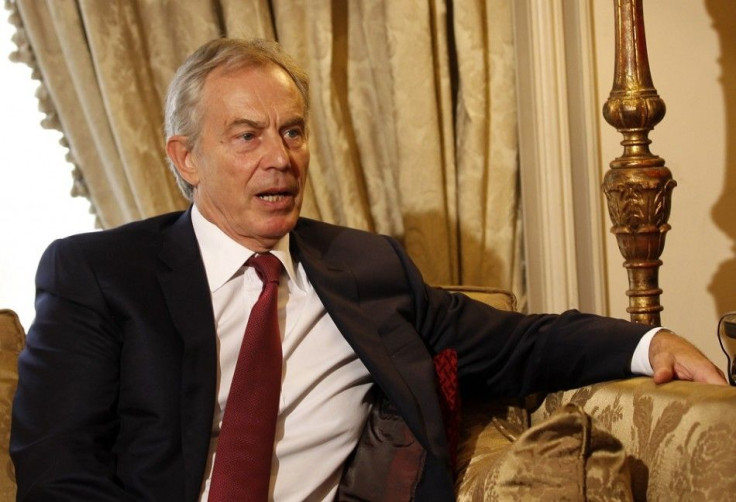Former British PM Tony Blair Resigns As UN Middle East Envoy

Former British Prime Minister Tony Blair has announced his resignation as the U.N’s special Middle East envoy, according to British media that cited diplomatic sources. Blair reportedly sent his resignation letter to Secretary-General Ban Ki-moon.
Blair is one of the top leaders of Labour Party and headed Britain's government for a decade. He was appointed the special envoy in 2007 as U.N. representative to the Middle East "Quartet" comprising special mediators from the United States, Russia and the European Union. The U.N headquarters in New York did not make any official confirmation about the resignation. However, a statement about his planned departure on June 30 was mentioned by the Brussels-based Ad-Hoc Liaison Committee that coordinates the Quartet's work. It hailed Blair’s “unwavering commitment” in the pursuit of peace in Middle East.
Limited Authority
As for the cause of Blair’s resignation, sources say that the former British PM was frustrated with the limited authority of his mandate. His frustration was apparent in the recent report to the Liaison Committee. "Over a year on from the breakdown in talks between Israel and the Palestinians, there is still no tangible political horizon in sight. The last year has repeatedly presented us with reminders not just of where the flashpoints and difficulties persist, but also that in the absence of a political horizon, the vacuum quickly fills with animosity and violence."
Blair’s role as the U.N envoy did attract lots of media fanfare but the responsibilities were modest. The primary task of the envoy was to bring about economic development to Palestinian areas. Blair had some success in it, such as improving freedom of movement and expansion of mobile phone services. But political progress that should have preceded stability, never came up under Blair's watch. There are also a section of people who say that he was too comfortable with the Israelis and the Palestinians were feeling he was not sparing much time for them in the job. Though Blair’s U.N stint may not be ending with glory, Blair cannot be blamed for the failure in having political headway in the region, where rarely international diplomats succeed, reports BBC.
Achievements
In the mandate, Blair had a great deal of focus on the Gaza Strip and the West Bank that includes East Jerusalem, reports The Telegraph. In contrast to the turbulence in Gaza, West Bank remained relatively calm, as Israel eased movement for Palestinians by dismantling many checkpoints. The Palestinian National Authority also proved capable in many sectors of the economy with rapid growth. Blair played a key role in the development of several industrial parks, which have now come to fruition.
(For feedback/comments, contact the writer at k.kumar@ibtimes.com.au)






